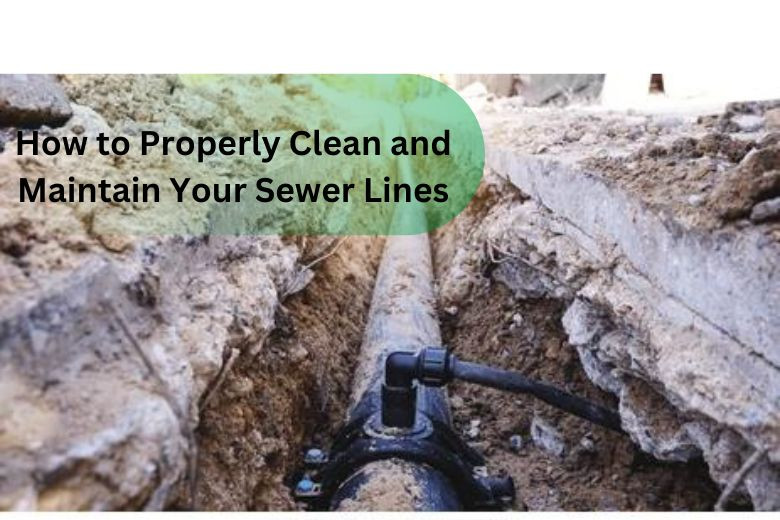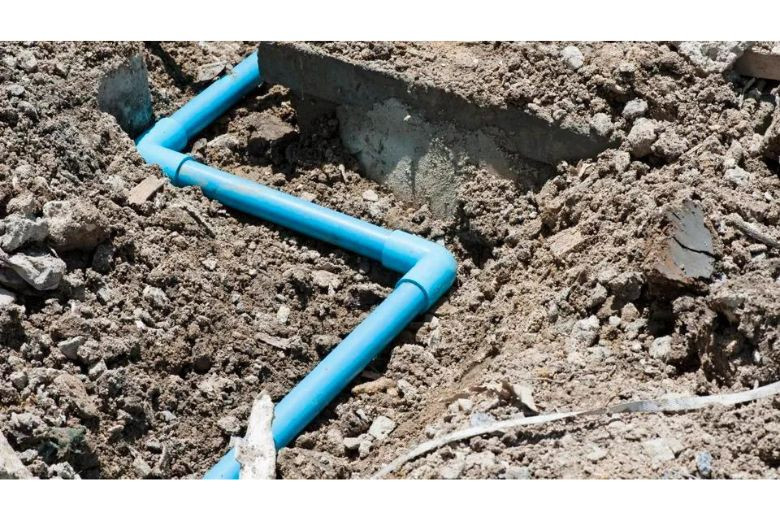How to Properly Clean and Maintain Your Sewer Lines
Posted on August 20, 2024 by Admin

Any home would want to be sure that it is healthy and the plumbing system very efficient; one very essential part is the sewer line. Cleaning and maintaining your sewer lines will help you avoid the pungent odors and rather costly repairs that may result from clogged lines, and it helps in smooth functioning. Here is an all-rounded guide on the keeping and cleaning of your sewer lines so that you may always make sure that the system runs at the best capacity.
Understanding the Importance of Sewer Line Maintenance
These sewer lines carry wastewater from your house to the municipal sewer or the septic system. Over time, these lines become blocked with debris, grease, tree roots, and other materials. Periodic cleaning of sewer lines is a preventive measure against blockages, backflows, and other problems that could potentially be caused to your plumbing system.
Signs Your Sewer Lines Need Cleaning
Before giving tips on how to perform maintenance, there are some important signs indicating that you need to clean your sewer lines. These include:
- Slow Draining Sinks and Tubs: In case your sinks or tubs are draining at a slow pace, it could be an indication that there is blockage within your sewer lines.
- Frequent Clogs: Recurring clogs and particularly in several drains suggest blockage in the main sewage line.
- Bad Odors: If you smell really bad odors coming from your drains or yard, this might be a sign of a sewer line problem.
- Sewage Backups: In case of backup of wastewater into your home, you have no other option but to obtain immediate attention for your sewer lines.
Steps to Properly Clean Your Sewer Lines
- Enzyme Cleaners: This is very effective in cleaning your sewer lines. Such cleaners contain natural bacteria and enzymes that break down organic material, such as grease, food particles, and hair. When used regularly, it might also be helpful in having your pipes clear and perfectly flowing.
- Mechanical Cleaning: In the event of larger and more solid blockages, mechanical cleaning can be done by placing a long flexible rod into the drain, known as a plumbing snake or an auger. This will rotate inside the drain, breaking up and/or removing the blockage. This operation is especially good when a blockage is caused by tree roots.
- Hydro Jetting: Hydro jetting uses a high-pressure stream of water to clean out your sewer lines completely. This intense velocity of water flushes down pipes, eradicating blockages and accumulation of debris from within. This is, therefore, a process best left in the hands of a professional plumber.
- Regular Inspection: Allow a professional plumber to inspect your sewer lines periodically. They can perform internal pipe evaluations with cameras that will help in noticing problems before they turn into major ones.
- Preventive Maintenance: Apply preventive maintenance to prevent frequent blockages in the drain. Avoid pouring down grease, oil, and large food particles into the drain. Use drain screens that filter the hair and other debris, and be more careful about what goes down flushing.
Long-Term Care of Sewer Lines
Of course, you can't have your sewer lines maintained or cleaned one night. Here are some tips for you besides the long-term care measures I mentioned above:
Tree Root Management
Trees that grow near your sewer lines could raise a ruckus by penetrating and breaking pipes. Trim tree roots regularly.

Replace Old Pipes
Older homes may have sewer lines made from materials that are more easily corroded or broken. Consider replacing old pipes with PVC or ABS pipes for resilience and long life.
Must Read : Understanding the Differences Between Copper and PEX Piping
Conclusion
In summary, these are a few of the primary tips on keeping your sewer line in the best condition and clean, essential for your plumbing system's health and efficiency. It is only when you stay vigilant of signs of troubles, adopt efficient cleaning methods, and employ adequate prevention measures that you'll not be posed with repair issues or any other expensive consequences in this regard. In light of the above lines, by keeping your sewer lines regularly maintained and taking proactive initiatives, they will help run your plumbing system without a glitch for years. Clean those sewer lines and enjoy a problem-free home.
Faqs
-
1. How often should I clean my sewer lines?
Clean your sewer lines every 18 to 22 months so that blockages and other rubble don't get a chance to pile up. However, if you begin to show symptoms like slow drain, repeatedly clogging, or the smell if it is foul, you might want to clean them very frequently.
-
2. Can I clean my sewer lines myself or hire it out?
Yes, simple cleaning by putting down enzyme cleaners and running mechanical snakes you can do. But the intense cleaning methods, like hydro jetting or recurring problems, are better left in the hands of a professional plumber.
-
3. What are the benefits of using enzyme cleaners for sewer lines?
These are the enzyme cleaners that break down things like grease, hair, and food particles. They do their job of keeping the pipes free-flowing without running into any risks of clogging with long-term regular use.
-
4. How do I stop tree roots from causing damage to my sewer lines?
Periodically check for tree roots in the area of your sewer lines and keep them trimmed. There are also so-called root barriers, and even chemical killers of roots, which will help avoid penetration and harm to pipes.
Recent Post
- Top Plumbing Service Providers in Arizona, USA
- Top 10 Electrician Service Providers in Alabama, USA
- Top 20 Roof Repair Service Providers in Alabama, USA
- The Role of Roof Insulation in Energy Efficiency: Tips and Tricks
- Understanding Roof Damage from Wildlife and How to Prevent It
- How to Choose the Best Roofing Contractor for Emergency Repairs
- Roofing Maintenance for Historic Homes: Preserving Architectural Integrity
- The Importance of Proper Attic Ventilation for Roof Health
- How to Identify and Prevent Roof Mold and Mildew
- The Best Practices for Removing Snow from Your Roof